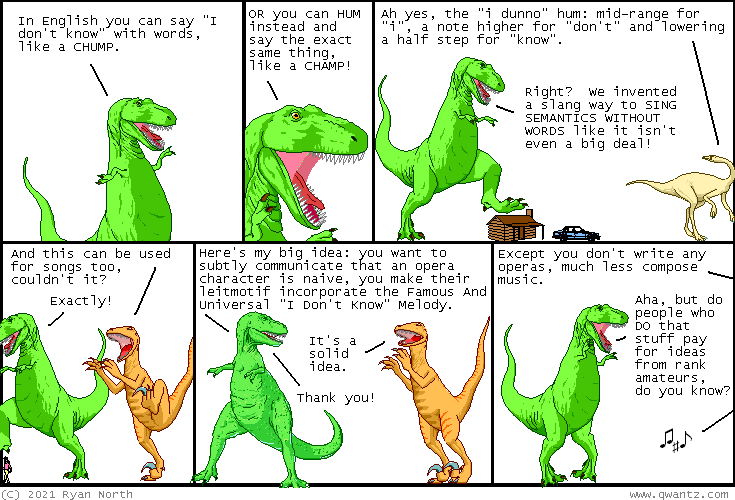More "I don't know"
We're following up on "Dinosaur Intonation" (8/28/2021) and "Hummed 'I don't know'" (8/29/2021). And today's installment starts with a distinction. There are two largely separate issues:
- Intonational choices (for performances of "I don't know" or any other phrase).
- Various types of articulatory reduction or replacement,
from crisp hyper-articulated performances,
through progressively slurred versions,
to hums, grunts, or even whistled or instrumental imitations.
Homer Simpson's version, from this YouTube clip, lenites the consonants pretty much to extinction, and reduces the second ("don't") vowel as well, going beyond Michael Watt's comment about a friend who spelled it "iono":
[The numbers in black are f0 estimates in Hertz (cycles per second)]
But today we're going to focus on the intonational choices, rather than the words-to-hum continuum. And the method will be socratic — we'll give examples, and ask questions. The answers will emerge in later installments, or perhaps in the comments.
Read the rest of this entry »



